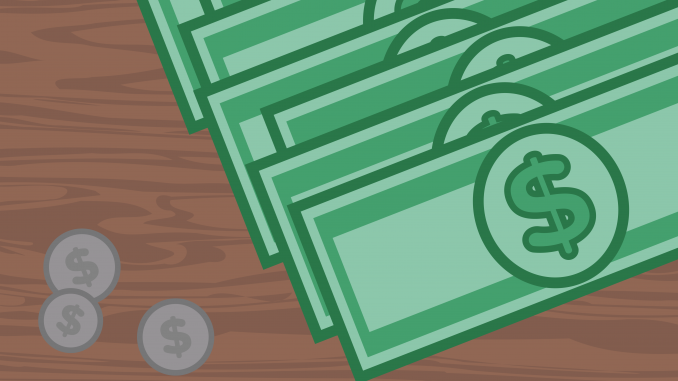
President Joe Biden’s $1.9 trillion dollar stimulus plan initially included a federal minimum wage increase from $7.25 to $15 an hour, but it is unlikely to survive in the final package, USA Today reported.
While a federal minimum wage increase would help people earning less than $15 an hour, small businesses would not be able to keep up with wage increases. Doubling the federal minimum wage right away will put 1.4 million people out of work, the New York Times reported.
Biden should combine individualized benefits with small business tax credits and then increase the federal minimum wage gradually to at least $15 an hour. This would be a win-win scenario for small businesses and individuals, as employers would be able to pay their employees a higher wage, and college students working at these businesses would be able to have a higher standard of living and dedicate more hours to studying.
Congress’s 2007 amendments were the last federal increase to the minimum wage, raising it from $5.15 to $5.85 per hour in 2007 to $6.55 per hour in 2008 then $7.25 per hour in 2009, according to the U.S. Department of Labor.
Two-fifths of workers under the age of 25 earn minimum wage or less, the U.S. Bureau of Labor Statistics reported.
But for these college-aged students, the price of attending college has increased eight times faster than wages between 1989 and 2016, Forbes reported.
Jana Calhoun, a senior dance major, makes $10 an hour as a stage crew worker at Temple Performing Arts Center.
“To be living comfortably, I’d need to work 30 to 40 hours a week at this job, which isn’t very plausible because I’m a full-time student,” Calhoun said.
Personally, I need to work 3 jobs that pay less than $15 an hour to pay my rent and tuition as a student.
As a cashier and delivery driver, I am also an essential worker, putting my safety on the line for a few extra bucks. As an economics major, I know that I work for corporations that would survive if they increased my wage.
In 2019, a living wage in the U.S. was $16.54 per hour before taxes for a family of four, according to the Massachusetts Institute of Technology.
But in Pennsylvania, the minimum wage remains $7.25 an hour, WGAL News reported.
Yet in every area except housing, the cost of living is higher in Philadelphia than elsewhere in Pennsylvania, according to Best Places.
As a result, 26 percent of the Philadelphians lived below the poverty line in 2017, including 45 percent of North Philadelphians, according to a 2018 Pew Research study.
The federal government sets the minimum wage knowing that these regional differences exist, but it may be more beneficial for states and cities’ economies to let local governments decide their own minimum wage based on their area’s needs, said Pedro Silos, an economics professor.
“The federal government could say, ‘Let’s set the minimum wage as a fraction of average wages in a specific area,’” Silos said.
Systems like the Earned Income Tax Credit help people earn money back on their taxes. This program reduces taxes and increases refunds for low and middle income earners.
Unfortunately, these types of programs often lack accessibility due to means testing, which gauges a person’s financial situation using various documents and paperwork, said Grace Spurrier, a junior political science major and president of the Temple College Democrats.
“To apply for these programs, one must have these materials on hand and the time and the ability to apply for something, assuming you apply for it correctly and it goes through,” Spurrier said.
In addition, students under the age of 25 who are claimed as dependents are ineligible to receive these benefits, making a minimum wage increase all the more important.
The U.S. could benefit from a graduated corporate tax, a system where taxes are divided into brackets and earnings are taxed at different levels, said Nate Wooding, a senior economics major and member of the Temple Economics Society executive board.
“Under this system, smaller businesses pay lower taxes and larger businesses pay slightly higher taxes, which could cancel out some of the costs of increasing the minimum wage,” Wooding said.
The “Fight for $15” has been a long, uphill battle, and the COVID-19 pandemic has exposed how little some of our country’s most vital workers earn. These essential workers, many of whom are college students, are the backbone of our country, but they should not have to work to the bone just to afford basic necessities.
Nobody working full-time should be living under the poverty line.



Be the first to comment